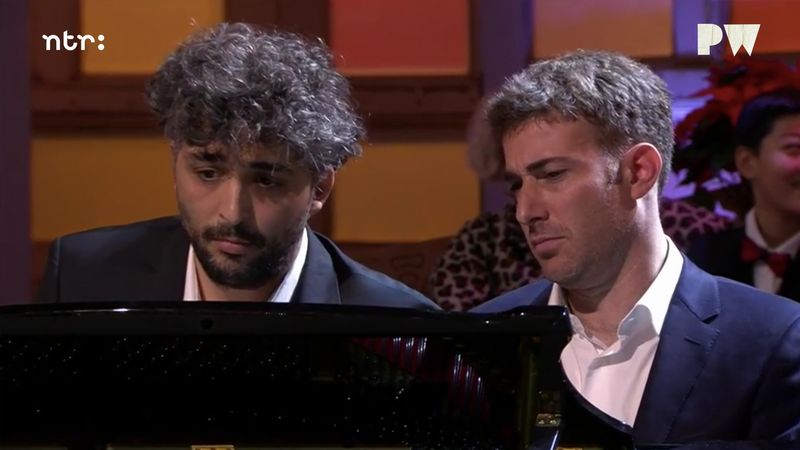Tribute to Bach
Madge and Vandewalle will play pieces of Feldman, Stravinsky, and Busoni during the Pianoduo Festival Amsterdam. All of them are composers from the 20th and 21st century. How can you pay a tribute to a 17th century composer with this music? “It’s not that difficult”, says Geoffrey Madge. “Bach has had a large influence on composers of the 20th century. Busoni, for example, was well known as a Bach expert back in his days. He has made a lot of arrangements of Bach’s music. During the Festival we’ll play Fantasia Contrappuntistica, one of Busoni’s masterpieces. It is based on Bach’s Die Kunst der Fuge. Busoni has arranged this in a very imaginative way.”
“In the beginning of the 20th century, Bach was considered as the ultimate source of composing”, agrees Daan. “In the music of Stravinsky, you can find a lot of Bach influences as well. As of the twenties Stravinsky started to experiment with the musical styles of the 18th century. Like many artists back then, he chose a cubistic approach; in essence, he has cut the music in pieces, and pasted those pieces back together in some sort of collage.”
Influence on pianists and instruments
It’s not only composers for whom the work of Bach has been of great influence. A lot of pianists have admiration for the famous composer as well. “Actually, I’ve been a fan of Bach my entire life. I play his music a lot”, says Geoffrey. “You can hear many aspects of musical architecture in his work. He was a master in constructing music. For example, in his Goldberg Variations, a variation in minor can easily precede a very virtuoso part. Such extraordinary contrasts can be found in his entire oeuvre.”
“For pianists, Bach is the start of all piano studies”, says Daan. “He is in the DNA of the pianist. Every pianist has played from the Notenbuchlein at a young age. It is an important book for the development of the musical brain, concerning counterpoint, polyphony and the basics of tonal harmony.”
“Bach has also had a large influence on the development of musical instruments”, knows Geoffrey. “He was often asked to advise about the construction of organs, or the acoustics of churches. He had a great amount of knowledge about these subjects. We know that he has heard a pianoforte once, and that he had a clear opinion about the improvement areas of the instrument. Probably, he would have been fascinated by the broad timbre possibilities of today’s piano. Without any doubt, he would have used these possibilities in his music if he would have lived nowadays.
Feldman as catalyzer
Morton Feldman’s Two Pianos might be the odd man out during the concert. “Feldman does not have a direct link to Bach”, admits Daan. “I consider it as an interlude. It works like a catalyzer for the ears of the audience. Once you have heard Feldman, you will listen differently to what comes next. His music sharpens the ear to the individual tone, the duration of the tone and how it disappears eventually. In fact, it is just the opposite of pop music, where you fill the space with a lot of noise. With the work of Feldman, you involve the silence of the room in the music. It’s almost like you only play for yourself and the audience comes towards you. It’s very rewarding to play this piece during a concert.”
Two pianos is an aleatoric piece; the notes are written down, but the duration and pace are not specified. “That requires a good feeling for timing, nuance and timbre,” explains Geoffrey. “You must listen carefully to the whole and to each other. The two piano parts can influence each other, but that does not happen all the time. You can compare it to a dialogue between two persons; sometimes you support each other’s story, and sometimes you maybe disagree, but you’ll maintain a continuous dialogue with each other.”
Daan: “It is a form of concentration and every tone is a tone on its own. You do not play the next tone until the moment you have a clear idea of what the tone should sound like. We play the same piece, but in a way we also play separately. It’s not specified how that comes together. In theory, it’s even possible that Geoffrey stops playing sooner than me, and that I keep playing for another three minutes. The work of Feldman is not well known, so I surely hope that it will be an experience for the audience as well.”
Order here your tickets here for “Old & New: Modern Masters with Geoffrey Madge and Daan Vandewalle on Saturday 12 October.
